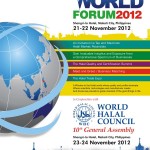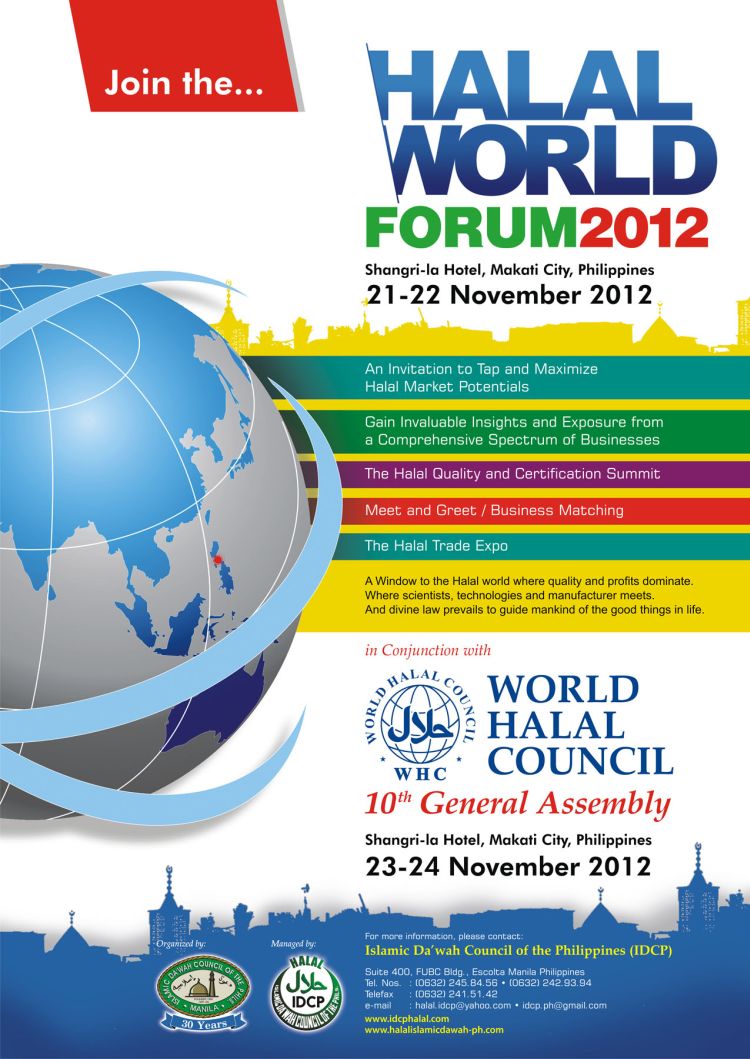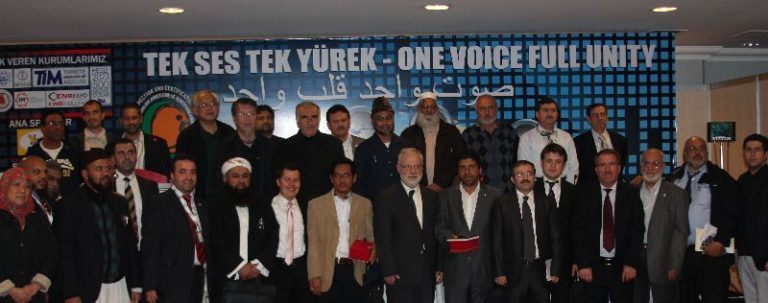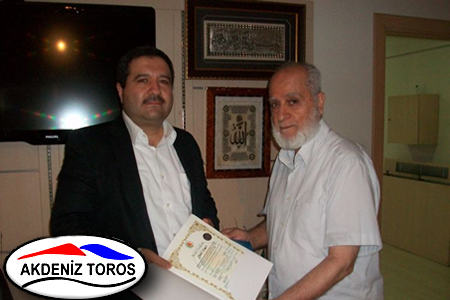
10th General committee meeting will be hold with the important agenda on 21-24 November in the capital of Philippines, Manila. Patron of WHC and GIMDES President Dr. H.K. Büyüközer and GIMDES the member of administrative body and WHC Executive Committee vice-president M. GEDIKLI will attend to the Congress from Turkey.
Before the congress, local Halal Certification foundation will be organized World Halal Forum and Dr. Buyukozer will make a presentation about Turkey: a gateway to Europe.
We hereby would like to submit briefly a declaration about WHC.
1.What is World Halal Council?
2.Brief Background of Halal Certification
3.Halal Logo as a Marketing Advantage
4.Halal Certification on Food Products
5.Halal Certification On Non-Food Products, Animal Feeds, Personal Care, Cosmetics, Packaging Materials, Logistic And The Like
6.Halal Certification is now considered – a Certification for quality
7.Market Updates
I. What is World Halal Council?:
The World Halal Council (WHC) is a World Body being a federation of halal certifying bodies worldwide after gaining international and global acceptance to their halal certification and accreditation processes.
The World Halal Council was established in Jakarta in 1999 in order to standardize the halal certification and accreditation process among member organizations representing the different countries and nationalities worldwide.
The WHC was first registered in Jakarta, Indonesia and again registered as a World Body in Kuala Lumpur, Malaysia. In fact, it took the WHC nine (9) years to be able to formulate, ratify and adopt the charter of the WHC. The By-Laws was finally approved in the year 2005 in Cape Town, South Africa.
As it is, the WHC is the only reliable source of information for a genuine world halal standard and that its members are expected not merely to observe the world standard approved by the General Assembly of the WHC but also to enforce the same within their jurisdiction.
II. Brief Background of Halal Certification:
Halal Certification started in the West in the mid ’60s in the United States by Muslim food and technical experts. It did not actually start in the Muslim countries but it came as a necessity for Muslims living in non-Muslim society such as the United States, Europe and in some parts of Asia and the Pacific. This practical safety measure of Muslims living in non-Muslim societies to preserve their Muslim identity and fulfill their religious obligation became a useful tool to guarantee that the products produced in non-Muslim countries are acceptable to the Muslim world.
When globalization became a direction of the world trading system which removed the barriers from one country and another, there was no more safety device that can prevent the importing country from accepting products from the other for quite some time.
III. Halal Logo as a Marketing Advantage:
The “halal” logo has therefore become a marketing advantage for the products marketed to the Muslim world and among Muslim communities, including the Jewish communities.
Since Halal Certification is already in place in some advance Muslim societies living in the West importing countries like Saudi Arabia, Malaysia, Indonesia, Brunei and others can only rely on those certifications made by the accepted credible certifying bodies that were already in place during those times until the passage and inclusion of halal into the United Nations Codex Alimentary in the year 1998 or thereabouts. But even during those times, most Muslim countries such as Saudi Arabia and the Gulf States and others were merely focused on meat products as an important product to be certified as halal for the reason that the meat halal slaughtering is made mandatory to all Muslims by the Holy Qur’an and the Sunnah of the Prophet.
IV. Halal Certification on Food Products:
As a matter of fact, even today, in some Muslim communities among the Arab countries, halal logo to them is important only on meat products. This is of course, was due to their limited understanding of the modern technology in the manufacture of food products. But the use of internet, text messages and the Friday sermons in various mosques everywhere have given the Muslims consciousness of what they should observe. This misunderstanding was changed when some countries like Saudi Arabia, U.A.E., Turkey, etc., attended the WHC meetings.
With the enforcement of globalization as a method now acceptable among all countries in the world for trade and business practices, Muslim countries have started to be concerned on processed foods, cosmetics and other personal care products; hence, the necessity of halal certification of all processed foods. As a matter of fact, in some countries in Asia like Malaysia, Indonesia, Singapore and Brunei, halal certification on drinking water is already a requirement because there are always critical issues on every product which have to be addressed by a credible body
V. Halal Certification On Non-Food Products, Animal Feeds, Personal Care, Cosmetics, Packaging Materials, Logistic And The Like:
Halal Certification did not stop on the food products. It is also important in non-food products including personal care, utensils, fashion and clothing’s, shoes and the like and lately halal certification is now made mandatory to animal and poultry feeds, packaging materials such as tin cans, drums, plastic bottles and the like which are in contact with the halal quality products. This is because the halal quality products has to be safeguarded from contamination and the principal contaminant of the product other than the raw materials and ingredients, if any, would be the packaging materials which come in contact with it; even the storage facilities, delivery vans and the like.
VI. Halal Certification is now considered – a Certification for quality:
These are actually the reasons why halal certified products have now become a product of high quality.Islam enforce us to consume Halal and Tayyib. There is no doubt that it would entail additional cost. Certainly, because quality has its own premium and everyone, especially Muslims deserve the premium processing of all that we take as food or use for our existence which means quality system being enforced by qualified halal certifying body. And this is the reason why the general consumers in the West, Europe and America and now in many countries in Asia and Africa are patronizing halal certified products regardless of their religious beliefs, cultures or traditions, thereby making halal certified products as a product of quality, not limited only to Muslims but to all consumers worldwide
VII. Market Updates:
The halal requirement was originally thought to be only for Muslims but in reality the Jews are also patronizing halal products because they are also prohibited to consume products which Muslims are also prohibited. Therefore, the general population of the world regardless of their religious belief especially by people who are conscious of their health, or are therefore having dietary programs to maintain good health would prefer halal certified products to those which are not.
The Experts estimates halal market to be US$ 2.1 trillion dollars annually; whereas, experts also estimates world halal food market between 850 – 900 million of U.S. dollars annually.
This is because, in reality, halal certification did not stop only on food and non-food products, but it also includes services such as logistics, hotels, restaurants and many others. Unfortunately, despite this abundance of opportunities for halal products, most of us in this country, think of halal business in terms of halal certification, instead of the production of halal raw material and ingredients which could be accepted globally. As a result, we may have many Halal certifiers than the Halal certifiable products.
It is hoped that various departments of our country could really look into the production of halal products and raw materials. In fact, we are the one importing these products and raw materials for the processing of our products instead of us producing them.





